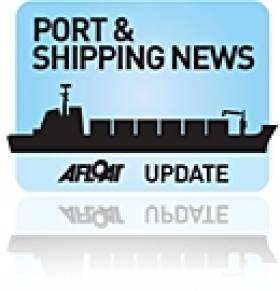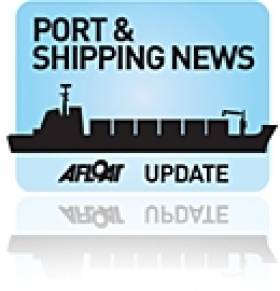Displaying items by tag: RoPax
Ferry-Fallout as DFDS Exit Irish Sea
The routes represented a fifth of the freight market and will result in the withdrawal of the twin 21,856grt passenger ferry (ro-pax) sisters, Dublin Viking and Liverpool Viking on the 7-hour Mersey route and the 13,000grt freighter Anglia Seaways on the route to Lancashire.
In recent years, new tonnage notably in the form of four freight-only newbuilds commissioned for Seatruck Ferries on their Warrenpoint-Heysham and Dublin-Liverpool routes has added to intense competition in a crowded north Irish Sea ferry-freight sector.
The process to purchase Norfolkline's Irish Sea operations by DFDS Seaways was finally completed in mid-summer of last year. The acquisition saw the Scandinavian newcomer take control of four routes between Birkenhead-Belfast / Dublin and the freight-only Heysham-Belfast / Dublin services and a fleet of seven vessels, four (ro-pax) ferries and three freight-only vessels.
DFDS Seaways latest decision is all the more dramatic as the company in early December then sold both Belfast routes to Birkenhead and Heysham to Stena Line. In addition the £40m acquisition included the sale of the chartered 27,510 ro-pax sisters Lagan Seaways and Mersey Seaways and the 13,000grt freighter half-sisters, Scotia Seaways and Hibernia Seaways. The deal is significant in that Stena will make an inaugural foothold on the Merseyside market.
With the sea-changes swirling in the Irish Sea market, the dominant player is with out doubt Stena Line. The ferry operator closed late last year the Larne-Fleetwood route and three vessels (for more information about those vessels click here) yet the inclusion of the former DFDS Belfast-Heysham route is closely similar with neighbouring ports and newer larger vessels.
The acquisition by Stena of the loss making routes from DFDS last month also coincided with a review to be conducted by the Danish companies remaining Dublin routes to Birkenhead and Heysham. The findings of that review were concluded with this months' decision by DFDS to close down the routes, marking the Scandinavians operators brief foray on the Irish Sea ferry scene.
Stena Route To Close This Week
The Stena Leader went to lay-up in Belfast. In the meantime the remaining vessels Stena Seafarer and Stena Pioneer continue to serve the Northern Ireland-Lancashire link.When the route closes, it is expected that the pair will re-join the Stena Leader in Belfast, where all three sisters will be at lay-up berth at Albert Quay. The Swedish owned ferry operator uses the port's Victoria Terminal 4, for their HSS and conventional ferry service to Stranrear, Scotland.
In early December Stena Line announced the acquisition of two routes and four vessels from rivals, DFDS Seaways. The £40m deal sees Stena taking over the freight-only route between Belfast and Heysham operated by Scotia Seaways and Hibernia Seaways, a pair of Japanese built 13,000 gross tonnes vessels.
The second route is the Belfast-Birkenhead (Liverpool) route, served by two chartered 27,000 gross tonnes ro-pax sisters, Lagan Seaways and Mersey Seaways. The ro-pax vessels will be sold to Stena Line as part of the agreement between the two ferry operators.

























































